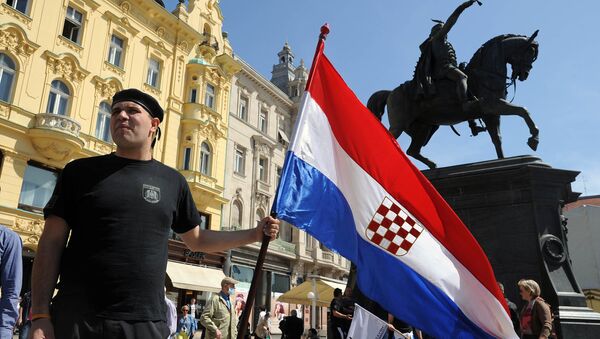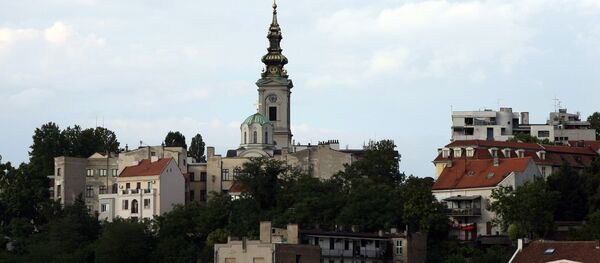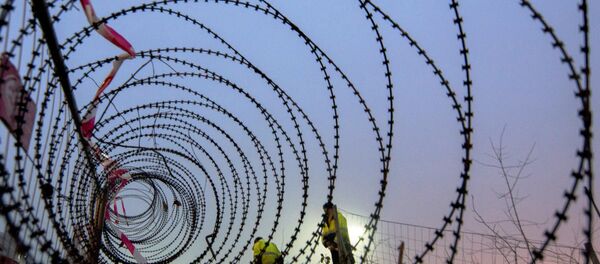In an article entitled "Croatia's nationalism: fear of the next Hungary," the newspaper reports on the first 100 days of Croatia's coalition government, which was formed in January following elections in November that failed to produce an outright winner.
After protracted negotiations between political newcomers Most (Bridge), which surprisingly gained 19 parliamentary seats, the conservative HDZ and the Social Democratic party, Most and HDZ entered into a coalition headed by Prime Minister Tihomir Oreskovic, a Croatian-Canadian former businessman and political novice.
One controversial figure is the Minister for Culture, historian Zlatko Hasanbegovic, described by Der Spiegel as "exemplary of a national-conservative turning point in Croatia."
Two days after taking office Hasanbegovic dismissed all seven members of the Culture Ministry's expert committee for non-profit media, who had decided on the distribution of the ministry's funds for non-profit media and new cultural projects.
"It was clear that they supported ideological platforms, which is a negation of media pluralism," Hasanbegovic said, and explained that rather than employ a committee, he and his ministry would oversee the funding of media projects, if necessary.
Hasanbegovic, 43, is known for radical anti-Communist statements, and allegedly used to be a member of the Croatian Liberation Movement (HOP), a far-right political party founded by former fascist leader Ante Pavelic in exile in Argentina in 1956. In 1996 he wrote newspaper articles in which he praised the "Ustasha heroes" who ruled Pavelic's Independent State of Croatia (NDH) during World War Two.
Der Spiegel also reports that at the beginning of March, the Croatian government dismissed the director and several editors of state broadcaster Croatia Radio Television (HRT), a decision which was criticized by ambassadors from the US and several EU countries who saw that as a hindrance to free speech.
Croatian President Kolinda Grabar Kitarovic rebuked their intervention, responding that ambassadors "can't and must not interfere in the internal affairs of their host country."
The newspaper's concern is not the first time the German media has shed light on far-right elements in Croatia. Last month the French-German channel Arte aired a documentary entitled, "Right one, two, three — is Europe drifting to the right?" which devoted a third of its film to Croatia and mentioned Hasanbegovic and parliamentary vice-president Ivan Tepes as political representatives of increasing right-wing extremism.
The film also visited nationalist celebrations held last year during the anniversary of the "Oluja" (Storm) operation in August 1995, the Croatian military's offensive to retake Serb-held areas of Croatia.
Arte reported far-right supporters there "singing fascist songs and selling nationalist memorabilia," and described Croatia as one of the worst examples of European neo-fascism.
"It's like someone in Berlin going round with a swastika on a national holiday," Croatian journalist Slavenka Drakulic told the program.
Minorities in Croatia have also expressed their concern about the authorities' failure to punish extremism, including last month when representatives of the Serb and Jewish minorities in Croatia boycotted the memorial to the victims of the NDH's WWII Jasenovac concentration camp.
Der Spiegel spoke to Croatian intellectuals about the country's political development, who sought to reassure readers that despite its social problems, Croatia is not headed for conflict with the EU in the same way as Poland and Hungary.
The governments in Warsaw and Budapest have received several warnings from the EU Commission and Parliament over legislative decisions which conflict with EU policy, including the freedom of the press.
"The danger that Croatia develops in this way is real, but we are far from Hungarian or Polish relations," political scientist Sandro Knezovic told Der Spiegel.
Zarko Puhovski, professor of political philosophy at the University of Zagreb, said that the government's controversial moves are the result of its inability to effectively carry out the economic reform program it had promised to implement.
"In this way nationalism and right-wing extremism that were previously only present in one part of society, have now been taken on by the political elite and therefore become politically relevant and acceptable," Puhovski said.






